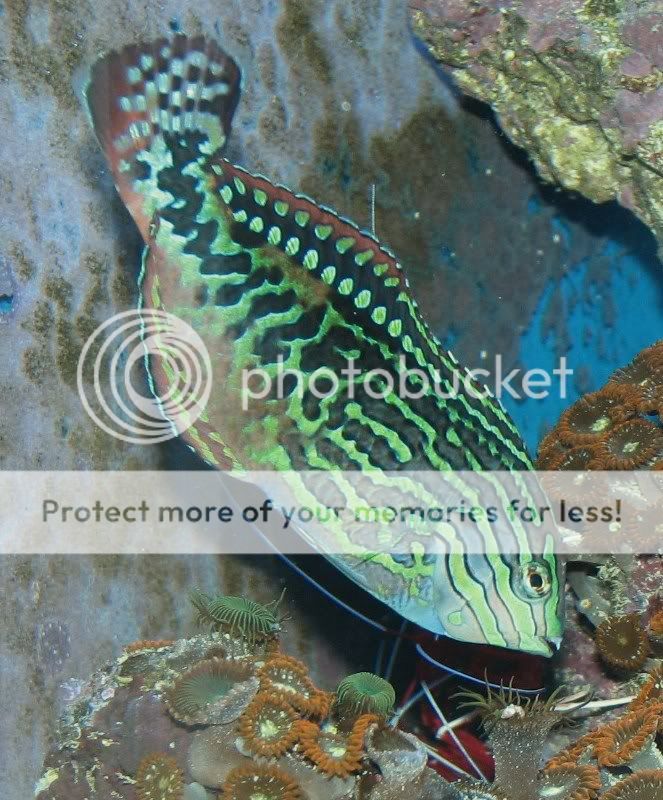Need more options for those of us with multiples

I'm 2 for 2 with good luck so far.
---------
- Macropharyngodon bipartitus
- Live Aquaria shipped, acquired 02/2007
- Quarantine by true definition of the word, not by hobby idea (dedicated temporary small tank, rock, sand)
- 180, over two years, LPS/SPS, etc
- First attempt
Roughly 2" when acquired and it has changed drastically. Now almost jet black at roughly 5-6", yet the most peaceful fish in my tank. I will try to get new pictures as I haven't taken any for a while.
(will add updated picture later of the change)
---------
- Macropharyngodon ???????
- Local acquisition from Phishy Business, acquired 05/2007
- Straight into the tank
- 180, over two years, LPS/SPS, etc
- Second successfully leopard
I have never successfully identified this one. This one was roughly 2-3" when I purchased it and was actually LARGER than the bipartitus already in the tank. Roughly 5" now. After it was introduced to the tank, it stayed about the same size for a short time. During that period, the bipartitus VERY rapidly went through a growth spurt and hit 4". Almost overnight (seriously, overnight), the bipartitus changed from the colorful setup to the black colors.
---------
Never even the slightest sign of aggression between the two leopard's or to/from other inhabitants. All other wrasses steer clear and don't even attempt to engage in any form of hostilities.
Additional thoughts/notes:
If you can't get it to start eating, Arctic Pods are a healthy treat, and were almost instantly identified as delicious food by both leopards. Within weeks they were eating mysis, flake, pellets, etc.
Obviously pick a good reseller and/or LFS to get the fish. It's a very delicate shipper and deserves respect and proper techniques to ensure it's survival.
Absolutey, positively, no matter what, DO NOT DIG THROUGH THE SAND LOOKING FOR THE WRASSE! I see thread after thread stating that a leopard has dissapeared and the user is starting the digging process. 1) If it is not doing well and/or is sick, digging through the sand is likely NOT going to help you catch it (as it will just re-dive in another location). 2) You're going to further stress the fish drastically. Imagine being in a dead sleep protected, and being ripped out of your bed abruptly. What would your reaction be? 3) They will take some time to acclimate to your setup. My bipartus took a while to understand the light cycle. I would see it about 5-10 minutes before the lights turned off, then slowly longer, slowly longer, etc. The second leopard was at the LFS, so was quicker to adapt. Now they're both up about 10-15 minutes after the actinics turn on, and are sleeping before they go off.








